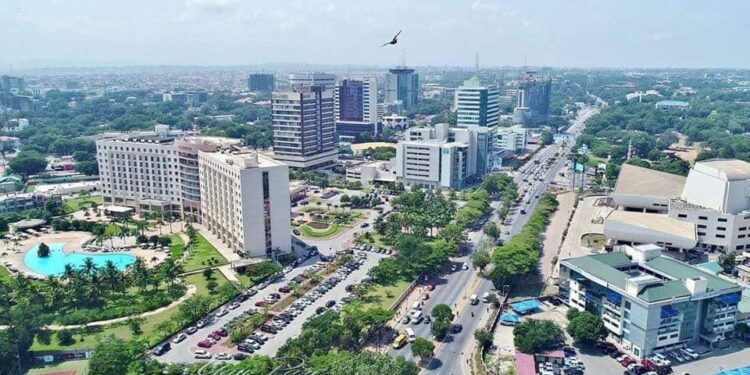Tax expert calls for tax reforms amid exodus of multinational companies
The disclosures by Mr Gyan-Quansah and Mr Badu-Aboagye heighten the urgency for policymakers in Ghana to engage in proactive dialogue with stakeholders and institute comprehensive tax reforms to foster economic growth while easing the burden on businesses.
Abeku Gyan-Quansah, Tax Partner at PwC Ghana, has unveiled a disconcerting trend whereby elevated tax levels in Ghana are compelling multinational corporations to relocate operations to more business-friendly jurisdictions.
Speaking on PM Express on Thursday, Mr Gyan-Quansah revealed that companies are restructuring their business models, moving core operations outside Ghana to cut production costs and subsequently importing finished goods back into the country.
This shift, according to him, not only hampers employment opportunities for Ghanaians but also raises questions about the sustainability of the current tax landscape. Contrary to speculations of linking recent tax increases to International Monetary Fund (IMF) directives, Mr Gyan-Quansah emphasized that these fiscal policies are intrinsic to Ghana’s domestic economic agenda.
Analyzing the IMF-Ghana program, he dismissed the notion of external coercion, pointing out that the Ghanaian government voluntarily proposed about 27 tax measures in its submission to the IMF to enhance revenue generation.
Calling for an immediate overhaul of Ghana’s tax laws, particularly focusing on flaws in the VAT framework, he criticized regulations requiring businesses to pay taxes even in periods of financial loss, labeling it as “positive tax”, further highlighting the resultant disputes between businesses and tax authorities, asserting that such disputes undermine revenue inflow to the state.
Mark Badu-Aboayge, CEO of the Ghana National Chamber of Commerce and Industry, echoed the concerns raised by Mr Gyan-Quansah, emphasizing the lack of consultations when introducing taxes. He cited the recent challenges surrounding the Tax Amendments Act as emblematic of the disconnect between policymakers and the business community.
“We are committed to paying taxes,” Mr Badu-Aboagye affirmed, “but first help businesses improve their status or situation so we can meet our obligations.” His remarks underscore the financial strain on businesses meeting tax obligations in the midst of challenging economic conditions.
The disclosures by Mr Gyan-Quansah and Mr Badu-Aboagye heighten the urgency for policymakers in Ghana to engage in proactive dialogue with stakeholders and institute comprehensive tax reforms to foster economic growth while easing the burden on businesses.
Source:norvanreports


